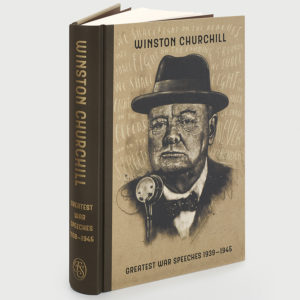
Finest Hour 191
The Government by Mr. Churchill

Chaim Weizmann,
April 14, 2021
Finest Hour 191, First Quarter 2021
Page 43
Review by David Stafford
David Stafford is author of Oblivion or Glory: 1921 and the Making of Winston Churchill (2019).
Paul Addison and Jeremy Crang, eds., The Spirit of the Blitz: Home Intelligence and British Morale, September 1940–June 1941, Oxford University Press, 2020, 544 pages, £30. ISBN 978–0198848509
A plague shadows the land. Death stalks the streets. Normal daily life comes to an abrupt halt. In its place descends a host of safety regulations that many fellow citizens choose simply to ignore. Friends are cut off from one another; travel is severely restricted. Familiar social rituals suddenly present danger rather than comfort. It is difficult to get hard news and rumours run rampant. When will it end? Is there light to be spotted at the end of tunnel?
The COVID-19 pandemic? Certainly. But also that dark time that Britain faced some eighty years ago during the Blitz when Hitler’s Luftwaffe unleashed lethal waves of bombing attacks against British cities and towns, and life was turned upside down amidst a pandemic of fear, dread, and anxiety. The resonances between these two historic moments are eerily similar. For that reason alone, this is a book well worth hunkering down with during whatever lockdown each of us is currently enduring.

2025 International Churchill Conference
During the Second World War, the morale of the British people was clandestinely monitored by a secret unit of the Ministry of Information known as Home Intelligence, or HI. Drawing on information from a wide range of sources across the nation, HI’s staff produced weekly reports covering almost every aspect of daily life in Britain. This volume contains a complete set of the reports for the period of the Blitz between September 1940 with the Luftwaffe’s first massed attack on London, to June 1941 and Hitler’s invasion of the Soviet Union. This is a treasure trove of documents that, in the words of the editors, “reads like the collective diary of a nation.” Sadly, one of them, the distinguished Churchill scholar Paul Addison, died shortly before the book was completed. It has fallen to his Edinburgh University colleague, Professor Jeremy Crang, to shepherd its proofs through the final stages of publication of what is a unique and invaluable set of documents.
The title echoes the romantic nostalgia that has long surrounded the Blitz and been evoked ever since during times of national crisis—and not least during the current pandemic. Yet the material it contains frequently belies the positive image of a nation united. For all its apparent solidarity, it is clear that the home front was riddled with inequalities, grievances, and disagreements. While morale was influenced by the wider progress of the war, it was most immediately and directly affected by practical concerns such as housing, food, rationing, work, and income, which often highlighted existing inequalities and sharpened peoples’s resentments in what was still a highly class-based society. Some areas of the country suffered far more than others. Grumbling and complaining were widespread, and hardship sometimes brought out the worst as well as the best in people. At least national leadership was in plentiful supply. Not everyone liked or admired Churchill. But by and large the nation continued to support him, and his speeches were uplifting and inspiring. 120,000 letters a week were surreptitiously opened and read. One report based on them in October 1940 reassuringly recorded that “The one desire of the British Public seems to be Government of the people, for the people, by Mr. Churchill.” His was a coalition government and he made sure to address the whole of the nation in his broadcasts.
One fact that stands out amongst many is that rumours—or fake news—frequently ran rampant, often aided or even invented by the infamous Nazi propagandist William Joyce, otherwise known as “Lord Haw-Haw,” in his English-language broadcasts on the Hamburg-based radio station Germany Calling. One of the wilder ones was recorded by Home Intelligence in January 1941 and involved my own birthplace, the shipbuilding city of Newcastle-upon-Tyne in northeast England. “Among the tales of mystery and imagination reported this week,” it noted, “are accounts of 50,000 parachutists descending on Newcastle.” It later transpired that this ludicrous story actually began when a barrage balloon escaped its moorings and then, like Chinese whispers, spread rapidly like wildfire. The volume is peppered with other such examples that reveal how in times of fear and uncertainty people can embrace the most outlandish and sometimes malign ideas.
One other notable fact recorded in the reports is how rapidly the blitzing of Britain led to the acceptance of the moral legitimacy of similar Royal Air Force attacks on German cities. After especially devastating raids on Leeds, Hull, Plymouth, and Clydeside in the early spring of 1941, Home Intelligence recorded that the popular sentiment for reprisal raids was running very strong and that “the moral aspects of the problem are now almost entirely discounted.” Voices were growing, indeed, urging that military targets should be abandoned and that instead the RAF should simply obliterate an entire German city—preferably Berlin. Thus were being planted the seeds of the true horrors of aerial warfare of which the Blitz on Britain offered a mere foretaste.
Subscribe
WANT MORE?
Get the Churchill Bulletin delivered to your inbox once a month.





